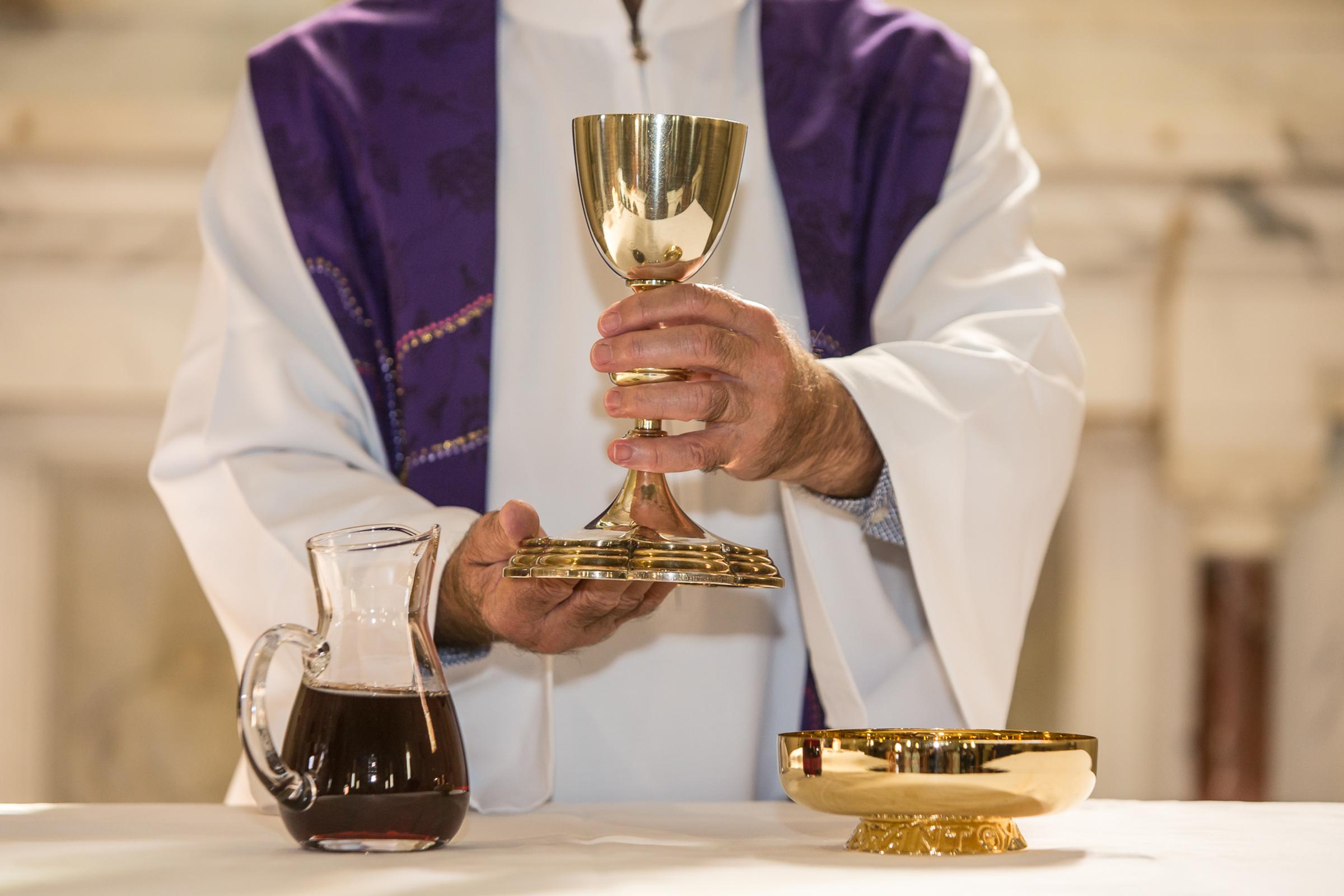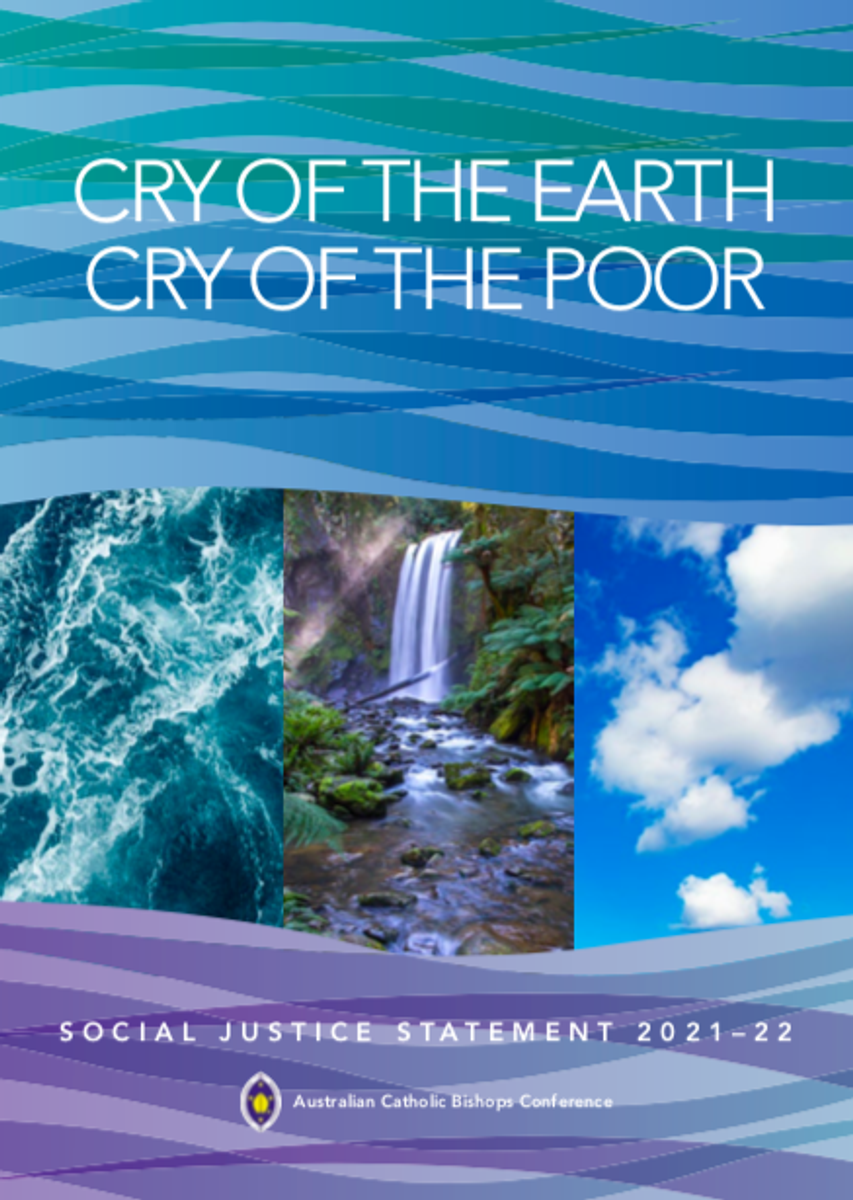Living with Strength and Kindliness

Australian Catholic Bishops Conference
Social Justice Statement 2021- 2022
Cry of the Earth, Cry of the Poor
We celebrated the Social Justice Sunday on the 29th of August. The Australian Bishops’ Social Justice Statement, Cry of the Earth, Cry of the Poor, invites us to join in responding to Pope Francis’ invitation to take a seven-year journey towards total ecological sustainability guided by seven Laudato Si’ Goals.
The Statement provides theological foundations to ground and inspire our efforts to care for creation while responding to the needs of the disadvantaged and excluded.
This week Fr Brian Boyle, Episcopal Vicar for Education in the Diocese of Sandhurst,
unpacks the Bishop’s Social Justice Statement for us, summarising the main points that the Australian Catholic Bishops would like us to take from this important annual statement to Australia’s Catholic community.
The social justice statement for 2021-22 issued by the Australian Catholic Bishops Conference is entitled Cry of the Earth, Cry of the Poor, drawing attention to the ecological crisis we face on earth and the ways in which that crisis disproportionately affects the poor of our human community. We are all in this together. The statement is attractively written and presented. It is a clear call for all of us to undergo an ecological conversion and to get on board with controlling the effects of climate change in our world, both as citizens of the world and as Catholic Christians.
The statement is in three principal parts (1) seeing the ecological crisis through the experience of those most affected by the crisis; (2) how scripture, theology, Catholic social teaching and the wisdom of First Nations people can assist us; (3) and finally, the on-going conversation on the care of creation. The title of the statement links the parlous state of the earth’s environment with the lives and experience of those persons most affected by the crisis.
A simple fact early in the statement brings home the urgency of attending to the issue of global warming and rising temperatures: on January 4, 2020, Penrith (a western suburb of Sydney) recorded a temperature of 48.9c. This temperature made Penrith on that day the hottest place on earth; this figure is also half-way to boiling point!
The first part of the statement looks at what is happening to the ecology and environment from the point of those most vulnerable, those most affected – the world’s poor. We are called to listen with an open heart to these persons. What we are beginning to see is a popular movement away from a carbon-based economy, even if this choice is not managed by government or corporation. It is the young people in our communities especially who see their future and that of their children at risk, as an issue of intergenerational justice. Australia is surrounded by Pacific Island nations, many of whom are already experiencing the effects of climate change with rising sea levels, costal erosion and decreasing fish stocks. We all remember graphically the recent horrendous bushfires when parts of our country burnt literally to the eastern seaboard. Our rivers and waterways are under pressure. We need to listen more attentively to our world, our environment, to creation.
The second part of the statement identifies all the rich sources of wisdom we can draw on for our reflection on, and action for, our beautiful world which is now endangered. The Scriptures teach us that our world was created by our loving God, and that the divine presence continues in creation. We are creatures within creation, stewards of the created order, and not masters of the universe. The universe and the created order reveal the love of God and we are immersed in a world that continues to reveal in manifold ways the presence of the divine. We are called to respect the created order and to respond in wonder and awe. What our present human-made CRY OF THE EARTH CRY OF THE POOR ecological crisis is revealing soberly to us is the need for conversion and change, to move from abuse to stewardship. Catholic social teaching can guide us here. Listening to and learning from our world can also guide, for example, in the simple but key realisation that if we are to have a future on earth, we need to move to renewable energy sources. Importantly, our First Nations people have much to teach us in terms of caring for country.
The third part of the statement invites us all to an on-going conversation and action about our care for creation. Pope Francis’ encyclical on the environment Laudato Si (2015), the care for our common home (there is no planet B) is a great impelus for this reflection and action? It is clear now that care for creation requires a profound conversion on the part of each of us, expressed in new ways of living and life style choices. These choices will involve discussions about renewable resources, moderation in consumption, and reusing and recycling materials.
The biblical account of creation in the Book of Genesis, chapters one and two, says clearly that after creating the world in all its wonders, beauty and order, God pronounced the creation very good. Ours is a beautiful world and yet it stands at a critical point in its history. We are invited to hear the cry of the earth (so strident in series of natural disasters we have experienced) and the cry of the poor, those persons profoundly disadvantaged, economically and socially, by our ecological crisis. The social justice statement this year gives us much to reflect upon and offers simple steps we can each take to move from misuse of creation to wonder in our common home.
Fr Brian
If you would like to know more about this year’s Social Justice Sunday Statement 2021-2022 please visit:
https://socialjustice.catholic.org.au/2021/06/24/social-justice-statement-2021-22/
If you would like to know more about the Laudato Si Action Platfrom please visit:
https://laudatosiactionplatform.org/
This is a time to repair damage done to people, places, creatures, our communities and the earth. It will require both personal and political will in the immediate and longer terms. This is a time to transform our way of understanding the world, our place in it, and our way of living – our very cosmology’ (Bishop Vincent Long).
There are many challenges for us presented in this year’s statement. We are called to change our minds, our hearts and above all our behaviours.
What might be some next steps for you, as you enact your role, in Caring for Creation?
Kirrilee Westblade
Catholic Identity Leader
Sandpiper and the Australian Catholics magazines have now gone digital!
Please see the link below to access:

